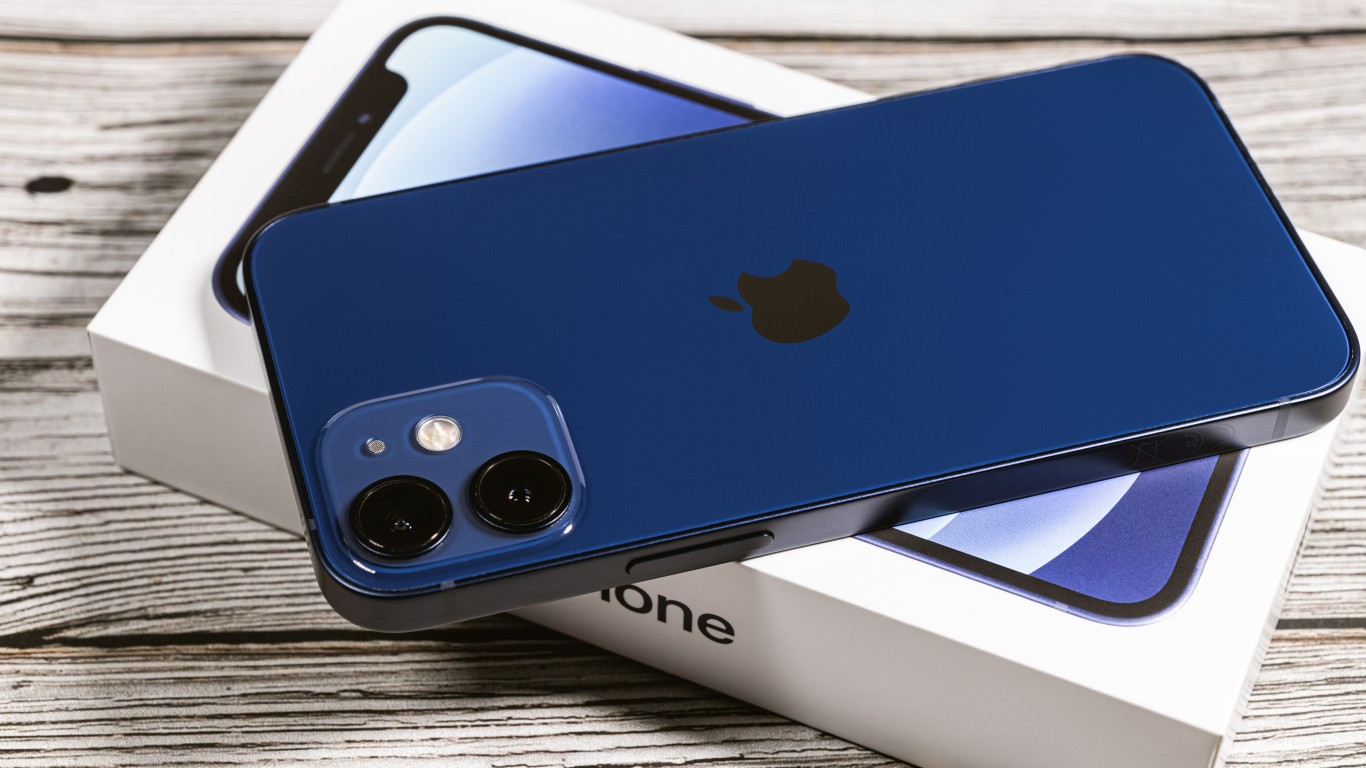Technology
What's Up With Apple: Losing Big to Disney+, iPhone 12 mini, T-Mobile Tracking

Published:

Apple Inc. (NASDAQ: AAPL) did not make major headlines on Tuesday, but the world’s most valuable company had a role in a number of stories. One bit of Apple-specific news: the stock gained more than 4% on Tuesday as investors decided that tech stocks had fallen enough in 2021 to justify a buy-the-dip moment.
Disney+ subscribers topped 100 million globally according to a statement Tuesday from Disney CEO Bob Chapek. When the company launched the service in November 2019, its stated goal was to reach 60 million to 90 million paid subscribers by 2024. Disney has revised that total several times since then, and Chapek said that the company now expects to have 230 million to 260 million subscribers by 2024.
Apple TV+ has not fared nearly as well. The streaming service may have made it into the double-digit millions, but the company has said nothing about how many of those subscriptions are paid and how many are free for a year when consumers buy a new Apple device. One estimate from last spring set the number of active users at just 5 million but offered no estimate of how many are paid.
Netflix reported more than 200 million subscribers at the end of the December quarter, compared with a Disney+ total of nearly 95 million at the same date.
According to a report in Nikkei Asia, Apple is cutting its parts orders for the iPhone 12 series by 20% for the first half of this year. Rather than a late 2020 estimate calling for 96 million of the latest Apple smartphones, the new estimate suggests total production of the iPhone 12 will drop to around 75 million. The report noted that 10% to 15% of Apple’s late 2020 parts orders were made for the 12 mini.
The largest cut will be made to production of the iPhone 12 mini. According to the report, 12 mini production will be chopped by 70% in the first half of the year. GF Securities analyst Jeff Pu told Nikkei Asia, “Consumers won’t have that very strong feeling about the differences between core processors and about 5G wireless communication performance immediately, but they can immediately see the difference in screen size.” Because most consumers don’t expect to see much benefit from 5G, choosing an older model with a larger screen and more battery life.
Finally, T-Mobile on Tuesday announced that unless subscribers specifically opt out, the company will sell their web usage data to advertisers. The new program begins on April 26. According to a report at Ars Technica, here’s how the company explained the move to its customers in a privacy notice:
[S]tarting April 26, 2021, T‑Mobile will begin a new program that uses some data we have about you, including information we learn from your web and device usage data (like the apps installed on your device) and interactions with our products and services for our own and 3rd party advertising, unless you tell us not to. When we share this information with third parties, it is not tied to your name or information that directly identifies you.
T-Mobile’s program flies in the face of Apple’s soon-to-be-released tracking transparency feature that requires people to opt in to tracking rather than opting out. The new Apple feature does not apply to network carrier tracking and, according to MacRumors, AT&T and Verizon already share customer data with advertisers. In that regard, at least, T-Mobile appears to be unique by giving its customers a chance to opt out.
Thank you for reading! Have some feedback for us?
Contact the 24/7 Wall St. editorial team.